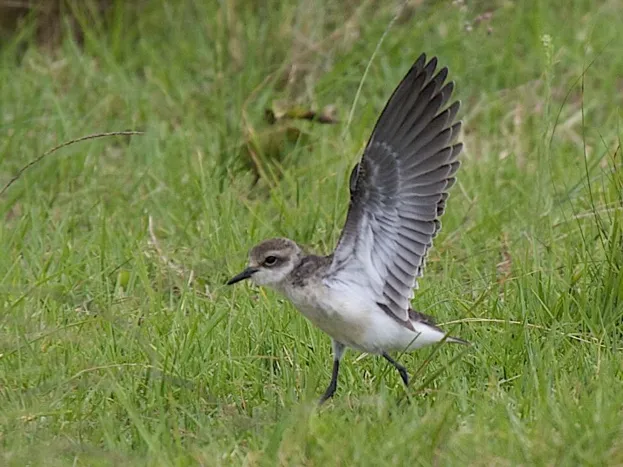The International Union for Conservation of Nature (IUCN) has published its latest update of the Red List of Threatened Species, which provides the conservation status on plants, fungi and animals.
A number of island endemic species have been moved to lower categories, such as the Azores bullfinch, Seychelles white-eye and two of the UK’s overseas territory species, which have been ‘downlisted’ from Critically Endangered to Vulnerable – the Montserrat oriole and the St Helena plover.

“The Saint Helena plover and Montserrat oriole have been brought back through a combination of hard work, determination and enlightened funding,” said RSPB’s Jonathan Hall.
The plover was down to only 208 individuals in 2006, but there are now over 500 adults.
However, the update also highlights the decline of many species, including the African grey parrot, whose status has changed from Vulnerable to Endangered.
This iconic bird has declined by 99 per cent in some parts of Africa due to unsustainable trapping for the international pet trade and habitat loss.
Another well-known species under threat is the giraffe, which has suffered a devastating decline of up to 40 per cent over the last 30 years.
Habitat loss, civil unrest and illegal are likely to have contributed to this fall in population.
“The scale of the global extinction crisis may be even greater than we thought,” said Inger Anderson, IUCN director general.
The update also reports on 742 newly recognized bird species, 11 per cent of which are threatened with extinction. For the first time, assessments of 233 wild relatives of crop plants have been also included in the Red List.
Find out more information on the updated IUCN Red List
Global figures for the latest IUCN Red List of Threatened Species
Total Species Assessed = 85,604
(Total threatened species = 24,307)
- Extinct = 860
- Extinct in the Wild = 68
- Critically Endangered = 5,210
- Endangered = 7,781
- Vulnerable = 11,316
- Near Threatened = 5,498
- Lower Risk/conservation dependent = 238 (this is an old category that is gradually being phased out of the IUCN Red List)
- Least Concern = 40,920
- Data Deficient = 13,713

